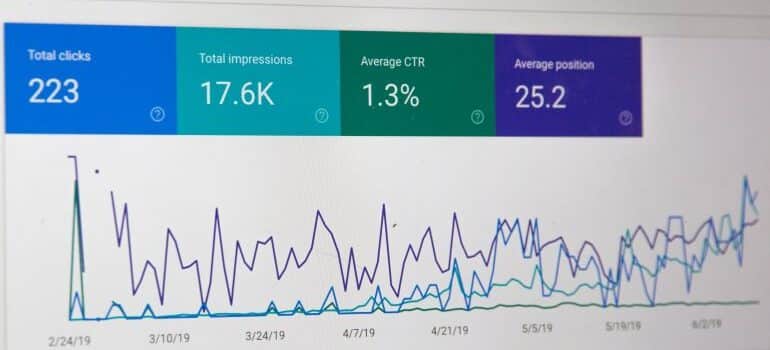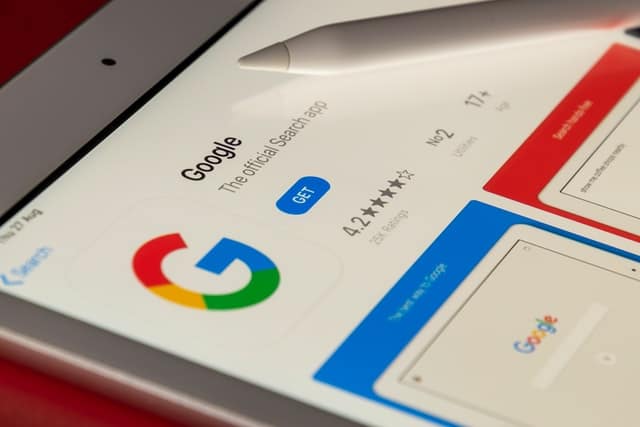Getting Google to index your website is one of the most important tasks you have ahead of you as a website owner. The first thing we should clarify, of course, is what exactly ‘indexing’ is. You see, for a site to pop up in Google searches at all, it first needs to be added to Google’s index. This means that, if your site is not there, you wouldn’t be able to locate it through Google, at all. The only way to access it would be through a direct link. Of course, you could still use other search engines, but it should be obvious why you would want your website to be accessible through Google. So, then, how to get Google to index your website? In this article, we’ll cover all the most common ways to do it.
9 steps to ensure that Google indexes your website

Ensure you do not have noindex tags on your site
Now, one of the first steps in your attempt to get Google to index your website is making sure you are not telling it not to do it. It’s possible to include a tag in your page’s source code that will ban Google from doing so. The worst part is, it is possible for it to slip by you undetected if you had accidentally included the tag during the page’s creation. This will not stop the rest of your site from being indexed. But it will apply to a specific page, and also make it harder for crawlers to do their job.
Make use of internal links
Internal links demonstrate the cohesiveness of a site and make it much easier for crawlers to do their job. By following well-placed internal links, search engine crawlers can swiftly comb a website and allow Google to make a judgment on whether your site should be indexed. As such, ensuring that you are using internal links on every page definitely helps attempts to get Google to index your website.
Earn the support of well-established sites
There is one thing that boosts your chances to get Google to index your website tremendously – backlinks. More specifically, backlinks from well-established and thoroughly indexed websites. If you are having your backlinks posted by such sites, which are regarded well by Google indexing analytics, then you will be able to increase your own website’s standing and chances of quickly getting the majority of your website indexed, too. In turn, this again positively reflects on the sites that linked to your pages as it opens up the possibility of link exchange.
Do not have duplicate pages
Duplicate pages seriously hurt your chances to get Google to index your website. Crawlers register such repetitions and mark them as a negative thing. Not to mention the fact that you are directly slowing down the efforts of crawlers to get through your entire site. If it takes too long for them to complete the task, Google might start flagging your website as a lower priority.
Prioritize high-quality posts and pages

Of course, such flagging will only occur if your content is not up to snuff. Having a lot of pages is fine. Having a lot of pages with little to no value and repeat content is not. This is why you need to prioritize high-quality content. As for your older or lower-quality pages, either have them taken down or flagged as pages crawlers should not visit. In other words, offer interesting blogs, good services, website marketing analysis, or help with SEO strategizing. But do not just post a ton of content no matter how bad it is.
Make a solid social media account for your website

A social media account is useful in a variety of ways. You can use it to engage potential customers, promote your business, or simply show off your website. A good level of social media presence actually helps get Google to index your website. If people follow your links to your website, then the analytics reflect that. And, in turn, Google notices and devotes more resources to crawling your site. Which, of course, speeds up the indexing process as well your chances to get indexed in the first place.
Work on your SEO

You should always, always pay attention to technical, on-page, and off-page Search Engine Optimization (SEO). If you are not sure how to do it, you can look up SEO for moving companies. What SEO does is maximize your compatibility with Google’s algorithm. And, if your goal is to get your site and pages indexed quickly, that compatibility is sure to speed things along. On the other hand, even if you somehow manage to get Google to index your website with poor SEO, your site would still suffer from fewer or unsatisfied visitors.
Make a sitemap
Making and maintaining a decent sitemap is immensely helpful. It will direct Google’s crawlers to the most important pages of your site. This will, firstly, expedite the process of indexing those pages. And, secondly, optimize the process by diverting Google’s attention from the lower quality content on your website. A sitemap for Movers Development, for example, would prioritize the services, the most successful blog posts, and the info pages. Your own website’s map needs to follow that pattern.
Comb your site for nofollow tags
Nofollow tags will make your life a nightmare if you are trying to get indexed quickly! What nofollow tags do is direct crawlers away from the links they mark. This is helpful if someone is spamming your website with bad links in blog comments, for example. Since you definitely do not want to be associated with shady or low quality sites. However, if you accidentally nofollow your internal or backlinks, that’s when trouble starts. Having a page flagged by a nofollow tag makes it harder for crawlers to reach it. And once they do, the tags would also serve a demerit, which might result in your page not being indexed.
Check if your robots.txt file prohibits crawler access
Finally, you need to make sure that your Robots.txt file does not contain crawler access prohibits. The file is, basically, what dictates whether or not crawlers can actually access your website and its pages. If the Robots.txt file bans the crawlers, then Google has no way to gain access to your site and index it. This means that you are directly denying your own efforts to get Google to index your website! It should be amply obvious why that would be a bad thing. And why do you always need to triple-check that the file is not banning crawler access to any of your pages.
Final comment
Now that you know how to get Google to index your website, you are ready to show off your site to the world! Just remember that indexing is an ongoing process. Even if your site is indexed, you want your individual pages to show up in searches too. This is why you want to keep up your efforts instead of neglecting them. For more information on optimizing your moving company website in accordance with Google requirements, make sure to reach out to Movers Development!






